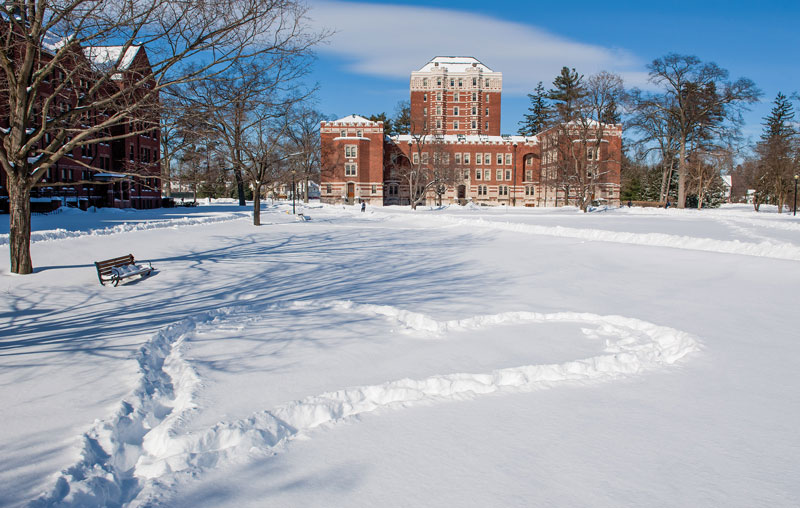The Gift That Keeps on Giving

In June 2016, my classmates and I will be celebrating 70 years as Vassar alumnae. It’s an appropriate time for introspection, but first I must confess to a high degree of pro-Vassar bias.
I believe with every fiber of my being that the best education is the one that seeks to prepare the whole person for his or her whole life, rather than simply training that individual for a job. However, today that viewpoint is under attack. Questions about whether it makes sense to spend so much money on a liberal arts education are being asked ever more shrilly, fueled by the high costs of attending college and the student-loan mess that is inviting comparisons with indentured servitude.
I do not disagree with the idea that colleges should prepare their students to be part of the workforce. We all like to eat, we all like a roof over our heads, and we all like to get our money’s worth when we enter into contracts. But I am asking how specific that education should be.
Today’s graduates can expect to change jobs and perhaps even careers, making the mental agility to think in new ways and adapt to new realities an essential requirement rather than just a nicety. Fueling the need to be ready for change are the steady stream of new technologies, longer life spans, and globalization, which stretches us beyond our national boundaries and makes parochial thinking not just shortsighted, but downright dangerous.
The conclusion that I draw from all these new demands is that the liberal arts, far from being an unaffordable luxury, are in fact more useful and more necessary than ever. And that brings me back to my gratitude to Vassar College, where I received not just the best kind of liberal arts education, but also a life.
In high school, I learned because the lessons were there. It was not until I got to Vassar that I learned to treasure the process of learning for its own sake, because it was, is, and always will be so much fun. That fun is what propelled me to earn a master’s in women’s history in my 60s and another one in writing in my 80s. And the desire to share that fun is why I wish that every child in the world could have an education.
To illustrate the depth, breadth, and joy of my Vassar education, I am reminded of an Art 105 seminar led by Richard Krautheimer. It was my senior year, so I was well aware of Vassar’s mantra that everything correlates, but still not prepared for what happened in that class on that day.
By the time our hour was over, Professor Krautheimer had orchestrated us into tying Renaissance history, painting, sculpture, architecture, music, and philosophy into one coherent story. I clearly remember walking back to my room with my head spinning, trying to recall every word that was said. Later that year, I had to take my senior comprehensives, where I found that one of the questions asked us to trace the history of nationalism in Germany and to cite corroborating materials from art, music, philosophy, and any other pertinent source. I laughed, grabbed my pen, and wrote fast.
To me, that story represents the best of Vassar teaching. I don’t remember ever having to memorize dates and names for multiple-choice tests. Rather, we were encouraged to trace causes, results, and trends, arriving at conclusions by carefully checking, gathering, sorting, and analyzing our facts. It was the road beyond knowledge to wisdom.
One last story is about a 95-year-old friend, shopping for a new suit. His major requirement was that it be made of material “that would last.” And, indeed, the suit served him well until he was buried in it at the age of 104. I hold this story dear, because I find in it a kind of metaphor for my Vassar experience. Vassar gave me an education that has lasted all these years and that I am expecting will go with me to my grave, an education not just so I could do what I had to do to earn a living, but also for what I had to be to meet all the other challenges and opportunities that come with a life fully lived.
This piece was adapted from a presentation made by Langan during a reunion-planning conference held on campus during the fall semester.
